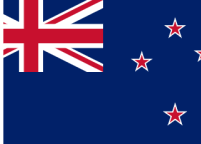The minimum wage represents the legal baseline salary employers must pay their workers for their labour. It protects against exploitation, guaranteeing that employees attain a fair and respectable quality of life.
By establishing this baseline compensation, minimum wage laws aim to reduce poverty, prevent labour exploitation, and promote social equity in the workforce. Different categories of workers, such as adults, youth, and apprentices, often have distinct minimum wage rates set by legislation.
1. Current Minimum Wage Rates in New Zealand
As of April 1 2024, New Zealand has set the minimum wage rate at $23.15 per hour, reinforcing the legal requirement for employers to compensate adult employees at or above this rate.
Table 1 : Minimum Wage Rates as of 1 April 2024
Type of minimum wage | Per hour | 8 hour day | 40 hour week | 80 hour fortnight |
Adult | $23.2 | $185.2 | $926.0 | $1,852.0 |
Starting-out | $18.5 | $148.2 | $740.8 | $1,481.6 |
Training | $18.5 | $148.2 | $740.8 | $1,481.6 |
As required by law, employees must be paid at least the minimum hourly wage for each hour worked.
Migrant workers have the right to the same basic employment protections as local New Zealand workers, which includes compliance with minimum wage requirements.
Instances of workplace exploitation can be reported for both migrant and local workers, ensuring equitable treatment across the board.
A singular statute governs the stipulation of minimum wage rates. The adult minimum wage applies to all employees aged 16 and over, excluding those classified as starting-out workers or trainees and those who supervise or train other employees.
The starting-out wage is designated for workers 19 and older, allowing them to earn 80% of the adult minimum wage for six months or during recognized industry training of at least 40 credits per year.
The training wage scheme, on the other hand, ensures that workers who complete 3 months or 200 hours of employment, whichever comes first, at no less than 80% of the adult minimum wage are then entitled to the full adult minimum wage. Eligibility for the starting-out wage includes specific groups, such as 16-—to 19-year-olds under certain employment conditions and 18-—to 19-year-olds who have received specified social security benefits.
II. Historical Background of Minimum Wage in New Zealand
A. Introduction to Minimum Wage Legislation in New Zealand
New Zealand was the first country to establish a national minimum wage, a milestone achieved through the Industrial Conciliation and Arbitration Act of 1894.
The evolution of minimum wage law in New Zealand has led to the current regulatory framework defined by the Minimum Wage Act of 1983. This act has undergone amendments to address the changing needs of the workforce, with the Minimum Wage Order 2016 currently setting the standards for minimum wage rates.
The Minimum Wage (New Entrants) Amendment Act of 2007 stipulates that rates for individuals aged 16 to 17 and those undergoing training cannot fall below 80% of the adult minimum wage.
B. Evolution of Minimum Wage Rates in New Zealand
The following table highlights significant changes and milestones in the minimum wage rates for adults, starting-out workers, and those in training, showcasing the annual increments from April 1, 2014, through April 1, 2023.
Date In force from: | Adult | Starting out | Training |
1 April 2023 | $22.70 | $18.16 | $18.16 |
1 April 2022 | $21.20 | $16.96 | $16.96 |
1 April 2021 | $20.00 | $16.00 | $16.00 |
1 April 2020 | $18.90 | $15.12 | $15.12 |
1 April 2019 | $17.70 | $14.16 | $14.16 |
1 April 2018 | $16.50 | $13.20 | $13.20 |
1 April 2017 | $15.75 | $12.60 | $12.60 |
1 April 2016 | $15.25 | $12.20 | $12.20 |
1 April 2015 | $14.75 | $11.80 | $11.80 |
1 April 2014 | $14.25 | $11.40 | $11.40 |
This table elucidates the progressive increase in minimum wage rates over a decade, reflecting New Zealand’s commitment to ensuring fair compensation for its workforce across different employment categories.
III. Exemptions to the Minimum Wage
A. Exemptions for Individuals with Disabilities
The Minimum Wage Act 1983 grants Labour Inspectors the authority to issue exemptions to the minimum wage under specific circumstances, notably for individuals with disabilities that considerably impair their job performance capabilities. These exemptions are carefully considered to ensure fairness and appropriateness, with several key points:
- Criteria for Exemption: Eligibility for a minimum wage exemption permit is determined by an individual’s disability and how significantly it affects their ability to perform job-related duties. The permit specifies an adjusted minimum wage rate for a particular job over a period tailored to the individual’s circumstances.
- Application Process: Employers considering the employment of individuals who may qualify for a minimum wage exemption should contact the Employment Service Centre. This step leads to a referral to the Labour Inspectorate, where the possibility of an exemption is evaluated based on the fairness of the proposed wage, the individual’s job performance capabilities, and agreement on the wage rate.
B. Agricultural Industry Specifics
- Industry Overview: Agriculture is a pivotal sector in New Zealand, accounting for about 5% of the country’s GDP and employing many people. In 2020, it was one of the largest employers, with approximately 106,000 workers.
- Compensation and Benefits: Employees in the agricultural sector often receive accommodation and other goods and services as part of their compensation, reflecting the industry’s seasonal nature and providing essential needs such as housing and food.
- Minimum Wage Compliance: Employers in agriculture must pay at least the minimum wage for every hour worked, as stipulated annually under the Minimum Wage Act 1983. Payments must be in monetary form, though certain non-cash benefits, like deductions for accommodation, can be agreed upon.
Employer-Provided Accommodation
- Accommodation as Wages: The Minimum Wage Act 1983 defines board as providing both accommodation and meals, while lodging refers to accommodation only. Agreements between employers and employees may include the provision of accommodation, with its cost deducted from wages before payment. This deducted amount is considered part of the “wages” to calculate compliance with the Minimum Wage Act.
- Agreement Specifications: Any accommodation agreement should specify the arrangement and its cost, ensuring the reasonableness of charges. Wage records must reflect the total wages payable before any deductions for accommodation.
- Deduction Guidelines: If no specific agreement on accommodation costs exists, employers can deduct a standard rate of 15% of the employee’s wages for board or 5% for lodging, based on the relevant minimum wage rate. The accommodation agreement should be distinctly outlined as part of or separately from the employment agreement.
IV. Understand Minimum Wage, Median Wage, and Average Wage
What is Median Wage in New Zealand and the Difference Between Minimum and Median Wage
In New Zealand, the median wage is essentially the middle salary value in the wage distribution, meaning half the workers earn more than this amount, and half earn less. As of recent data, the median wage, which stands at approximately $27 per hour before tax, varies based on industry, occupation, and geographic region.
Aspect | Median Wage | Minimum Wage |
Definition | The median wage is the middle value in the list of salaries, where half the workers earn more and half earn less. | The minimum wage represents the lowest wage legally permissible for employers to pay their employees. |
Purpose | They are a benchmark for setting wages in specific visa categories like AEWV. | Ensures a minimum standard of living for workers. |
Determination | Based on the overall distribution of wages across the economy. | Set by the government, often influenced by factors like cost of living, inflation, and economic conditions. |
What is the Average Wage?
The average or mean wage represents the total sum of all wages earned by workers in a specified group divided by the number of workers. It gives a general idea of the typical earnings within a particular setting, accounting for variations due to occupation, industry, experience, and other factors. The average wage helps understand overall earning levels and trends within a workforce or economy.
Aspect | Minimum Wage | Average Wage |
Definition | The lowest legal wage that employers must pay employees | The total sum of wages earned divided by the total number |
for their work. | of workers within a specified group. | |
Perspective | Ensures a baseline for compensation, preventing | Represents the typical earnings of workers in a given |
exploitation and ensuring a fair standard of living. | context, taking into account variations in wages. | |
Impact on Migrant | Provides a guaranteed minimum income, ensuring that | Reflects the overall earnings within a workforce, |
Workers | migrant workers are fairly compensated for their labor. | including those of migrant workers. |
Compliance Requirement | Employers must adhere to minimum wage laws, paying at | Employers may use average wage data to inform salary |
At least the specified minimum for migrant employees. | Offers for migrant workers, ensuring competitiveness. | |
Legal Consequences | Failure to comply can lead to legal penalties, visa | No direct legal implications specific to migrant workers, |
revocation, and potential deportation for both employer | but earning below the average wage may indicate issues | |
and employee. | with job prospects and income potential. |
V. Compliance and Enforcement of Minimum Wage Laws in New Zealand
A. Mechanisms for Ensuring Compliance:
New Zealand employs a series of measures to ensure employers adhere to minimum wage laws:
- Regular Inspections and Audits: Labour inspectors conduct checks to verify compliance, ensuring employers pay the minimum wage.
- Record-Keeping Requirements: Employers must keep precise documentation of employees’ hours worked and wages received, which assists in the oversight and enforcement processes.
- Reporting Violations: Workers have access to anonymous reporting channels, such as hotlines or online systems, enabling them to report violations safely. This allows relevant authorities to investigate reported complaints.
B. Penalties for Non-Compliance:
Employers in New Zealand facing non-compliance issues with minimum wage laws are subject to significant penalties:
- Fines and Monetary Penalties: Labour authorities impose fines for violations, with the possibility of increased fines for repeated or severe breaches.
- Legal Actions: Workers or labour unions can initiate lawsuits for back wages, damages, or other remedies related to wage violations.
- Business License Repercussions: Persistent or willful non-compliance may lead to the revocation or suspension of business licenses or permits.
C. Role of Government Agencies and Labour Organizations:
The enforcement of minimum wage laws in New Zealand involves concerted efforts from government bodies and labour organizations:
- Labour Departments/Ministries: Tasked with administering and enforcing minimum wage laws. They conduct inspections and handle complaints about wage violations.
- Labour Unions and Worker Advocacy Groups: These groups educate workers about their rights under minimum wage laws and offer support in instances of wage violations. They are crucial in raising awareness and providing a support system for affected workers.
- Collaborative Enforcement Efforts: The synergy between government agencies and labour organizations enhances the enforcement of minimum wage laws. Unions often advocate for stricter penalties for non-compliance and lobby for policy reforms to improve worker protections.
- In New Zealand, these mechanisms collectively ensure that minimum wage laws are respected, thereby protecting workers from exploitation and ensuring they receive fair compensation for their work.
Conclusion: Upholding Fair Labor Standards
New Zealand’s comprehensive approach to the minimum wage encompasses a deep understanding of its historical roots, meticulous legislative evolution, and diligent enforcement. This framework not only safeguards workers from exploitation but also underscores New Zealand’s commitment to promoting fairness, equity, and dignity in the workforce. Through ongoing vigilance and adaptation, New Zealand sets a global standard for labour rights and worker welfare.
Reference
https://www.employment.govt.nz/
About ICL Immigration
ICL Immigration, based in Auckland, is an established licensed immigration adviser with over 20 years of experience and a remarkable 97% approval rate. We’ve helped over 1,000 immigrants realise their New Zealand settlement dreams. Our pricing is flat and transparent, and our expertise ensures a seamless journey towards your new life in New Zealand.














